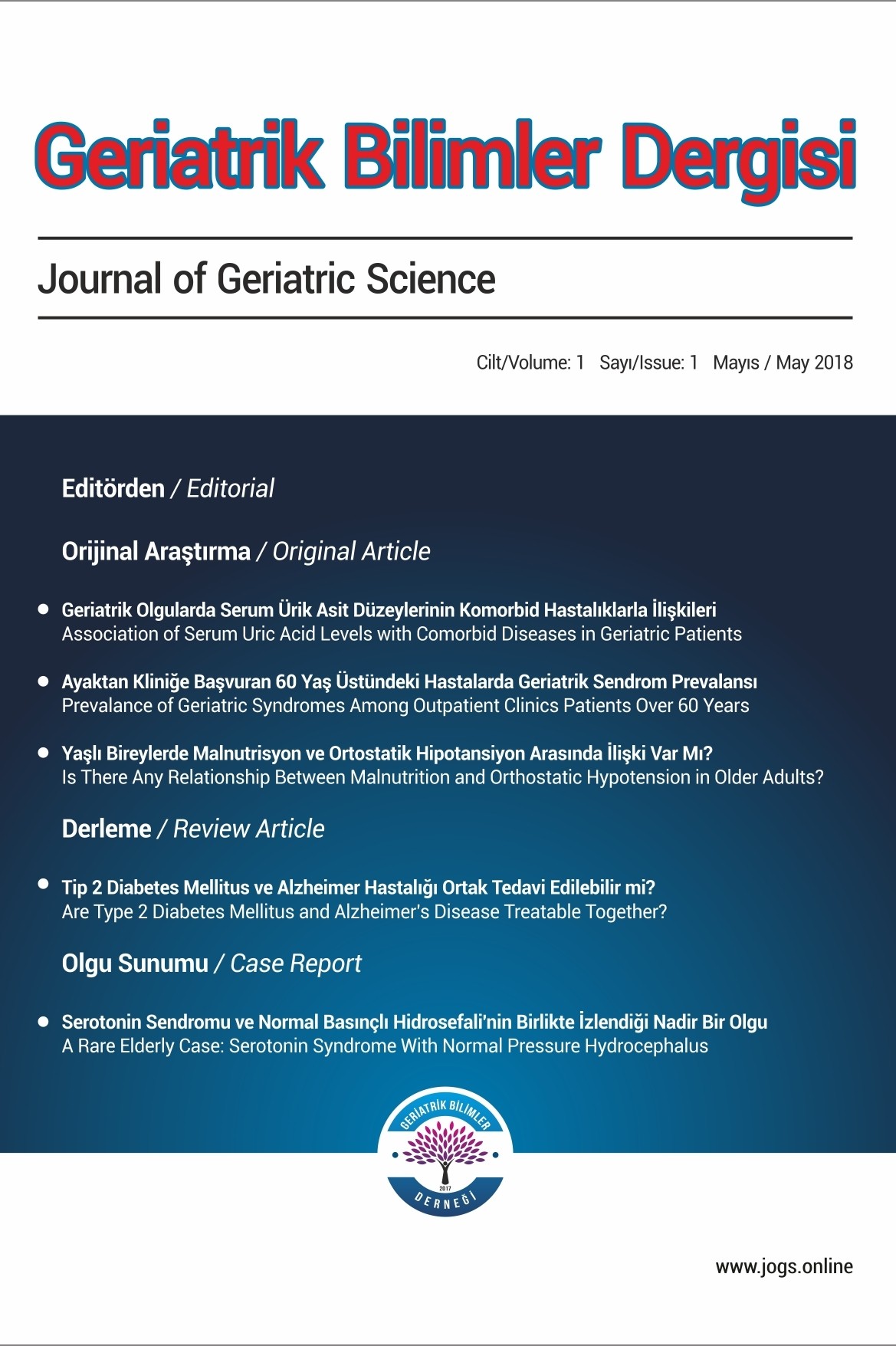
Geriatrik Bilimler Dergisi
Yazarlar: Beril KADIOĞLU YAMAN, Kübra YALMAN, Melda ÖZGÜRBÜZ, Övgü KAZANÇ, İlke KUŞATMAN, Turgay ÇELİK
Konular:Tıp
Anahtar Kelimeler:Fluoride,Geriatric,Memory,Cognitive function
Özet: Aim: There is insufficient evidence to support the effect of sodium fluoride on motor, behavioral and cognitive functions in the aging period. We aimed to investigate whether sodium fluoride exposure by oral gavage affected the locomotor activity, behavioral and memory functions in elderly mice. Material and Methods: Balb-C mice were randomly divided into three groups: control, low and high (3 and 9 mg/L sodium fluoride, respectively) dose groups. Locomotor activity test, forced swim test and novel object recognition test were performed after 28 days of feeding in all groups. Results: Older mice in both low and high sodium fluoride dose groups exhibited decreased locomotor activity but no statistically significant difference was observed. The increase in the immobility time in the forced swim test was also not statistically significant among the groups. However, the novel object recognition test results showed significant difference in high dose (9 mg/L) group when compared to low dose (3 mg/L) and control groups regarding to discrimination index. Conclusion: Our findings indicate that high dose sodium fluoride may induce impairments in cognitive function based on the object recognition test results in elderly mice.